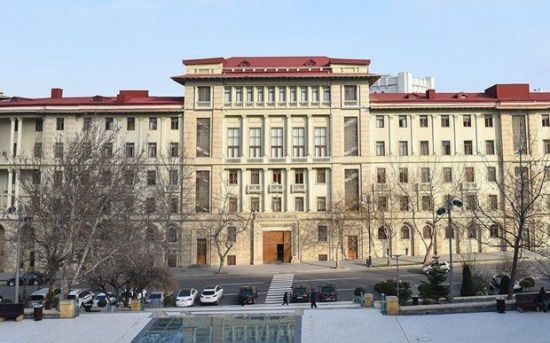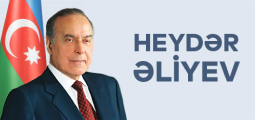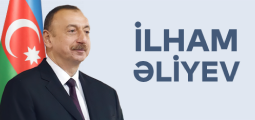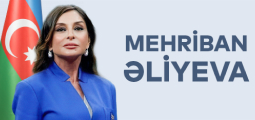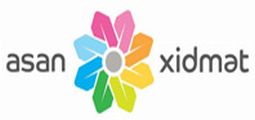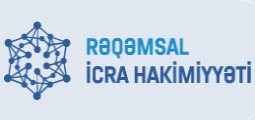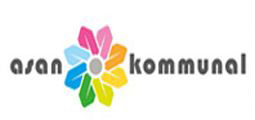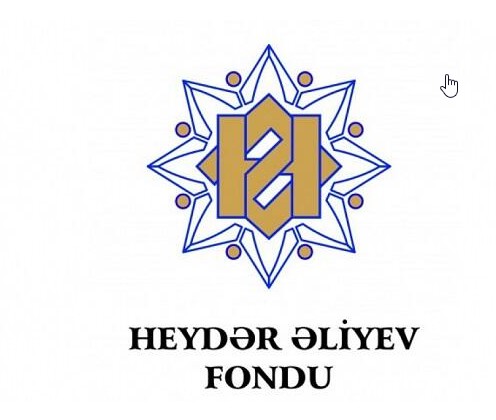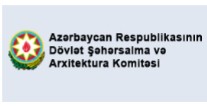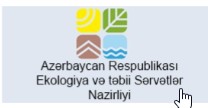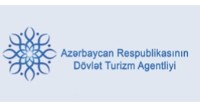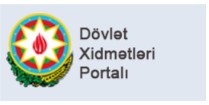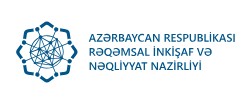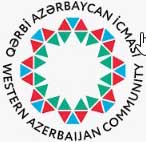Recommendations on the decision of Tariff (price) Council
Rising petrol prices in the world countries
Although oil prices have rebounded on world markets since the beginning of 2020 due to the pandemic, finding COVID-19 vaccine by the end of the year and relative easing of restrictions in most countries led to an increase in energy prices. It also affects the prices of gasoline, diesel fuel and other petroleum products.
According to the International Energy Agency, while the average price of gasoline in the world in 2019 was $ 0.91 per liter, by the end of December 2020 it was already $ 1.04 (1.77 manats), so it means 14% increase within a year:
Gasoline prices in Turkey fell to 5.5 Turkish lira per liter in March 2020, but are now around 7.2 Turkish lira (1.66 manats) - that’s 32% increase.
Gasoline in Georgia, which was 2.2 Georgian lari in March, was 2.4 Georgian lari (1.25 manats) last month.
In Ukraine, fuel prices rose by 4% in November-December last year.
In Russia, the price of Gasoline AI-95 increased by 7% before the New Year.
This trend has already begun to manifest itself in Europe since the end of last year. In November-December, diesel fuel prices in Europe increased by 29%. Now it turns out that German citizens celebrate New Year with increasing fuel prices - they will have to spend 11 cents more per liter of gasoline and diesel fuel. However, in Germany, there has been a sharp increase in the amount of taxes paid by car owners since the New Year due to the environmental issues. The German government intends to cover additional funds to the budget in this way to fulfill its social obligations and investment plans during a pandemic. According to the forecast of the “ZDF” German TV channel, the increase in fuel prices in this country will continue in 2021.
Current gasoline and diesel price in some countries
Currently, the retail price for every liter of AI-95 gasoline:
- 1,0 manat in Russia;
- 1,72 manat in Ukraine;
- 1,14 manat in Belarus;
- 1,12 manat in Georgia;
Price of 1 liter of diesel fuel:
- 1,44 manat in Turkey;
- 1,12 manat in Russia;
- 1,72 manat in Ukraine;
- 1,21 manat in Belarus;
- 1,19 manat in Armenia;
- 1,15 manat in Georgia;
- Fuel prices are very high in European countries;
- The fact that gasoline in Georgia is more expensive than in Azerbaijan leads to illegal transportation to the neighboring country.
Even after the tariff change, the retail price of Gasoline AI-92 in Azerbaijan is lower compared to most CIS countries.
The import of cars to Azerbaijan has increased the demand for gasoline and diesel in recent years.
Car imports to Azerbaijan have increased significantly in recent years. Thus, 28,876 cars were imported in 2018, 47,710 in 2019, and 47,841 in 11 months of 2020. Similar to the increase in imports, the demand for gasoline and diesel has also increased.
Social policy and increase in income of the population
The last price for diesel fuel was adjusted in 2013, and for Gasoline AI-92 in 2017. During these periods, the average monthly salary in the country amounted to 425.1 manat and 528.5 manat, respectively. In 2013-2020, the average monthly salary in the country increased by 66% and pensions by 73%. The average monthly salary for 10 months of last year (January-October) amounted to 704.5 manat.
As can be seen, a significant increase in the income of the population was recorded.
Reasons for increasing gasoline and diesel fuel price:
Increasing retail price of Gasoline AI-92 and diesel fuel:
- Bringing the quality of these products to high euro standards;
- Improving environment;
- Continuation of reconstruction and modernization works in the oil refining sector.
- It is planned to fully bring diesel fuel in line with the EURO-5 standard by June 2022 while Gasoline A-92 by June 2023;
- Factors such as conservative approach to tariff regulation, maintaining energy tariffs as low as possible, social protection of the population, providing low-cost energy for production entities and etc. were planned.
- Taking into account the environmental damage from the use of diesel fuel, the price difference between them has been reduced to switch to more gasoline consumption.
Expected consequences
- Gasoline A-92 will not cause a significant increase in prices in the consumer market, as it is mainly used in private automobiles. For example, if the average gasoline tank capacity of an automobile is 50 liters, the owner will pay an additional 5 manat to fill a tank while the owner of a diesel car will pay an additional 10 manat.
- Price regulation for Gasoline A-92 will stimulate the use of public transport and the transition to fuel-efficient cars;
- As a result of price regulation, additional revenues to the state budget are forecasted so that the additional funds will be used for social activities according to the systematic and sustainable social policy implemented in the country.
- Additional funds generated as a result of tariff changes can also be used to balance the expenditures of areas financed from the budget.
- Tariff increase is not much and will not lead to a serious impact on the family budget of citizens.
- Compensation will be paid to neutralize the impact of diesel fuel price increases on entrepreneurship entities engaged in passenger transportation. Mechanism for granting compensantion will be announced until the end of January. This is an important step in preventing tariff changes on public transport, which serves the interests of the population, especially the socially vulnerable group, and is used more by citizens in everyday life.
- Taking into account the increase of diesel fuel on the agricultural sector, the amount of subsidies allocated by the government will be reconsidered.
- Relevant measures will be taken to minimize the impacts of price changes on other sectors.
- Opportunities will be created in the public-private partnership to expand the use of alternative fuels.
- Monitoring measures will be carried out to prevent abuse of tariff regulation, unreasonable price increase.
Social packages in 2019
Furthermore, two revolutionary social packages have been implemented at the initiative of the President of Azerbaijan starting from 2019. Support packages for the population and business were conducted during the pandemic. According to the social packages approved by President Ilham Aliyev, salaries, pensions, benefits and other payments were sharply increased in the country in April and October 2019. The minimum wage has almost doubled to 250 manats; wages in the public sector have been increased by 20% -100%. The minimum monthly pension was reached up to 200 manat and increased 72,4% in our country. Azerbaijan will rank first in the CIS and Georgia in terms of purchasing power (according to purchasing
price parity) of the minimum pension, but to second place in the purchasing power index of the minimum wage.
Social benefits and pensions have been increased by an average of 100 percent as part of two consecutive social packages in 2019. New types of pensions – the monthly presidential grants were established for for caregivers of children with disabilities and persons with 1st degree disabilities, war veterans. IDP benefits and student scholarships were also significantly increased. 800,000 people's problem credit problems were put to an end and so on.
The coverage of the two social packages in 2019 was totally 4.2 million. people (42 percent of the population). The financial burden for 2019 is 2.3 billion manats, and for 2020 - 3 bln. manat.
Social package during the pandemic
The country has implemented an active policy to support employment and social welfare by taking large-scale measures against the coronavirus (COVID-19) pandemic under the leadership of President Ilham Aliyev. 3.5 billion manat was allocated for new support measures announced by the President of the Republic of Azerbaijan. Social support measures related to the pandemic have covered about 5 million people.
- Social support measures covered about 5 million people, including 12 activities in 4 areas to support for employment and social welfare.
- The coverage of the lump sum payment program of 190 manat was tripled and covered 600,000 people; these persons were fully paid in April and May. Payments were made for the 3rd, 4th and 5th time in the region (city) where the strengthened quarantine regime is applied, and for the 6th time in the country in December and 450 million manat was spent on this payment within the year.
- 100,000 families were provided with food handouts.
- The scope of the self-employment program was expanded (12,000 families, financial burden 70 million manat)
- Number of paid public workplaces were up to 90,000
- The rules of targeted state social assistance were simplified and expanded. An increase has already covered 12,000 families – 58,000 family members; addition funds allocated for this increase was 8 million manat
- The payment period for persons whose disability expired was extended (covered 14,000 people, allocated additional funds – 3 million manat)
- 15,000 single people over the age of 65 and people with disabilities were provided with social services at home
- Sustainability of social payments to the population is ensured; for this purpose, the reserves of the State Social Protection Fund were used (250 million manat).
Social package during post-conflict
According to the new social support package approved in December 2020, monthly benefits for the families of martyrs and the families of the martyrs of January 20 were increased from 300 to 500 manat, so it means an increase of 66.7%. The monthly Presidential grant for the "National Hero of the Republic of Azerbaijan" was also increased from 1,500 to 1,800 manat. Those named “Hero of the Patriotic War” will receive 2,000 manat monthly. Disability benefits were increased by 40%.
Large-scale social support packages are planned to carry out during the post-conflict.

